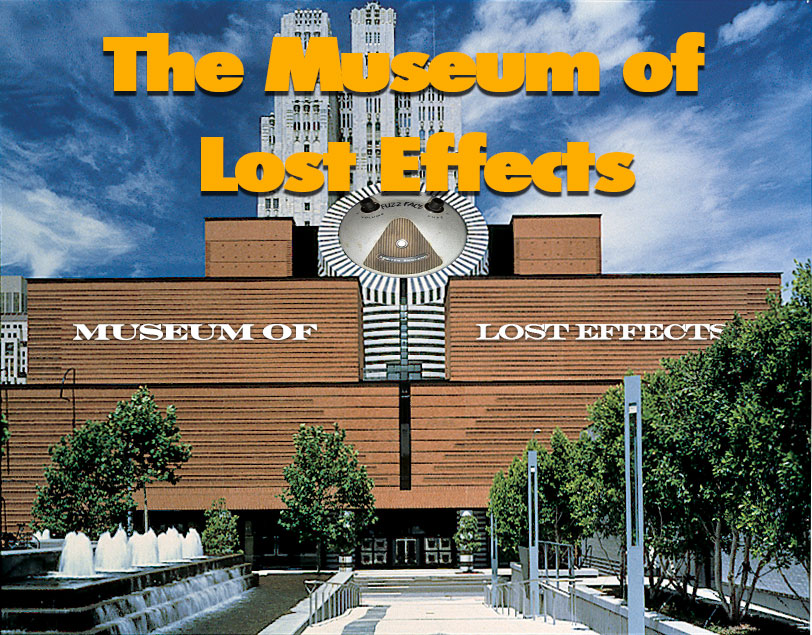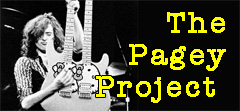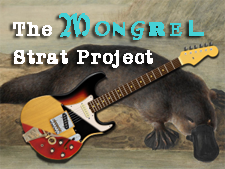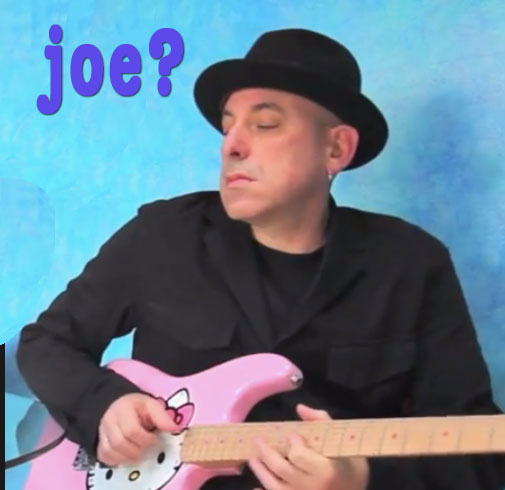Do you ever find it beneficial to put down the damn guitar and get out of the house?
Usually, my answer is “no” — I like hanging out in the studio, and am immensely grateful that I get to do something I love most days. But after a long stretch of over-work, I was hankering for a nice, long road trip, and decided to go on a photo safari of remote ghost town sites in Northern Nevada — something I’ve never done, and a serious change of venue for an effete urbanite like me.
The plan: explore by day and play with my mobile recording rig in the evening. Crank out a few posts on small audio interfaces and recording via GarageBand for iPad. So I tossed my Hello Kitty guitar into the back of my rented 4×4, figuring I could prop it in front of disintegrating shacks and abandoned mine shafts for maximum photo fun.
And then right before departure, I unpacked all the music stuff and left it behind in San Francisco. 
I just had a last-minute hunch that it might be beneficial to not play music, or even think about it, for a few days. I didn’t even listen to the radio much — just a couple of audiobooks. (Holy cow, I forgot how amazing Heart of Darkness is — and I only just realized that title of that great Gang of Four song “We Live As We Dream, Alone” is pilfered from Joseph Conrad.)
So now I’m back home — and while I can’t claim I’m bursting with magical inspiration, the guitar necks feel fresh in my hands, and think I’m a little more mindful about choosing and shaping notes — or at least more relaxed about the process.
Anyone have similar experiences? Instances when temporarily fleeing your musicianship improves, or at least refreshes, it?










I’ve always found that I play with more economy and mindfulness when I’ve had a pause. It sort of reunites me with my musical values and puts the whole chops issue aside. That said, I have to be dragged away kicking and screaming…
I find taking breaks helps, sure- but usually, for me they’re more a matter of there not being enough hours in the day to guarantee playing time every single day. Lately, though, I’ve been trying to make a point of getting in at least a half hour, even if it’s one in the morning and I’m exhausted. Sometimes being tired can actually lead me to stuff I might not have otherwise stumbled upon if I was alert- the trick is remembering it later! To that end, the li’l Tascam field recorder I picked up to do interviews with a while back has proven worth its weight in gold.
Speaking of Nevada, my pal Ray once woke up in a van, passing through a small Nevada town on tour, and said “Here.” His next record was recorded in a motel room there some months later, and it’s a haunting piece of work. Read all about it here: https://popshifter.com/2008-05-30/tans-are-okay-and-love-is-the-best-q-a-with-castanets/
That’s a great story about the Nevada record. Damn! I KNEW I should have packed a guitar! 😉
I could have recorded an awesome album here:
Time away from the instrument has been just as important as playing time in my overall development, if not more so. Taking a guitar sabbatical of indeterminate length? I recommend it.
I feel the same.
The greatest leap in my musical development occurred when at age 32 I took a year off to travel solo in remote parts of asia, not once touching a guitar and rarely hearing western music. And it wasn’t just from being exposed to asian music, I’d already had plenty of exposure before. More like resetting something in the mind from months of solitude, changing environments and personal reliance. Clears out much of the muscle-memory/mental-memory didlee-doo crap. When getting back into guitar I started thinking in terms of textures rather than specific licks and chords.
Practice is great, but it can also reinforce your worst habits and cliches over time.
That makes total sense. I never took an extended sabbatical like that, but looking back now at times I was frustrated with my playing, I realize I would have been better of if I had. I definitely relate to the notion of one’s playing moving ahead in crazy spurts rather than through steady growth. Stagnation interrupted by volcanic eruptions — that’s me in a nutshell. 🙂
I’ve definitely noticed significant increases in ability after an extended hiatus. Maybe I just grew wiser, more mature, or learned new things from listening more than playing.
I find it more problematic to take a break from amps- guitar comes back quickly, but LOUD guitar? I get sloppy quick.
ah, so -that’s- why one of those advertising sidebars on my Facebook page said “Joe Gore is using Expedia” – intrusive little so-and-sos, aren’t they?
Fuckers! :cuss:
Guess I need to revisit those privacy settings — who knows what ELSE people are seeing me do!
I have some issues with arthritis, but I just find not keeping hands on a guitar takes the edge off your chops.I also feel that taking a break clears your head and can have the effect of making you think in new ways sometimes.Good or bad some things can be helpful even if there isn’t any kind of science to show us how or why.
I play every day (with a few exceptions). No, I’m not getting any better. That’s not what I play for. It must be some sort of remedy for me. I hear too many songs I like and want to pick up the licks. I’ve heard some nice stuff here. The looping you do has inspired me in yet another direction. And tomorrow it will someone or something else I HAVE to try.
Steven King wrote a fabulous book on writing, called, cleverly, On Writing. Whether you like his stuff or not, it’s a great exploration of the practice and the craft. Anyway, he tells an interesting story: For years he told people that he wrote every single day of the year except Christmas and the 4th of July. But in the book, he confides he was lying — he actually writes every day, but made up the holiday story so people wouldn’t think he was that obsessive.
I just ordered “Heart of Darkness” from Amazon (my other obsession) and now you recommend another. Actually, great quote from Steven King.
Did you know Conrad was writing in his THIRD language? He was a Pole who didn’t learn proper English until he was in his twenties. Sheesh.
It’s great to go to places like that for inspiration. So it is always good to take an acoustic guitar wherever you go. you sit on a rock, watching the nature and notes arrive by their own (:
Yo pensaba que iba a sentarse en una roca en el desierto y escribir una gran canción. Pero al final, me decidí a sentarse sobre la roca sin una guitarra. 🙂
Então, como vai o seu rabo?
Do you speak spanish, Joe? There is a mistake in the sentence but it is otherwise quite good!
LOL — I don’t think I’ve EVER spoken a sentence in Spanish without making a mistake!
¡Pero estoy siempre tratando de hablar mejor! 🙂
I’m no expert in Spanish but I think the mistake is that you should have said “sentarme” as you were indeed speaking of yourself at that point.
@Digital Larry: Yeah, that was the mistake.
Don’t worry, I know how difficult is learning a foreign language. In fact, I think it is much more difficult learning spanish than english.
Hahaha! I’m as good in English as you in Spanish 😛
Well sometimes you need a rest of everything even for school :S
Music is not the food of Music.Life is!!!
:alert:
:cuckoo:
Well, my work usually keeps me away from instruments, so my vacations are when I can dig in and do some serous writing. However, Joseph Conrad is with me always. The Conrad collected short stories is hands down one of the greatest sociology textbooks ever. Having spent many years in some of the regions he wrote about, his descriptions of cultures, and human nature in general, are some of the most succinct and accurate portrayals recorded. Do yourself a huge favor and buy this: https://www.amazon.com/Collected-Stories-Joseph-Conrad-Companions/dp/0880014644 You’ll find material for hundreds of tunes in there.
Thanks for the tip! I will definitely check it out.
I read Nostromo last year, and while I was blown away by the prose, I didn’t feel a huge emotional connection. But I would love to read the shorter pieces.
The seafaring aspect of Conrad’s like make me think he, along with Melville, was the touchstone for the 19th-century nautical thread in David Mitchell’s Cloud Atlas — hands down, my fave novel of the new century. And soon to be a Wachowsky siblings film, though only time will tell if it’s a good one. My fingers are so tightly crossed, it’s fucking with my playing. 😉
I haven’t read that one, but I’ll add it to the list. Yeah, Nostromo was a little tough going. I’m not a huge fan of Conrad’s longer works, although I have read them all to find the scattered gems. The long ones were written/published as serials and I think he was just trying to max out his paycheck at times. But the short stories were generally tighter. Youth – A Narrative, An Outpost of Progress, and To-morrow come to mind as particularly poignant. The smoothness of the writing is even more impressive considering that English was his 4th or 5th language. Anyways, I read widely and move at least once a year, but I always pack a hard copy of the story collections of Conrad, Fitzgerald, Hemingway, and Chekhov, and the essays of GK Chesterton. Between them, I can get a short term fix for nearly any mood.
While we’re on a literature sidetrack, I recommend that you read In Praise of Shadows – An essay by a Japanese writer in the 30’s. I think his aesthetic philosophy fits rather well with aspects of your approach to music and tone. It’s a great read if you haven’t stumbled across it yet. https://dcrit.sva.edu/wp-content/uploads/2010/10/In-Praise-of-Shadows-Junichiro-Tanizaki.pdf
Okay, I’m going to twist the literary discussion back to guitar tone by mentioning the fact I consumed many of the works in question as audiobooks while soldering at my workbench! All those great 19th century works that I never got around to, and probably wouldn’t have. As if there weren’t already enough reasons to explore DIY! If I weren’t building guitar pedals, I never would have “read” Middlemarch or Karenina or Vanity Fair. I will always associate the Brönte sisters with fuzz guitar. 🙂
Excellent! I’ll have to try it out.
As it would happen, my Ph.D. is in Psychology – focussed on human learning, performance, skill acquisition, movement science and such.
There is significant scientific support for the benefits of taking a break. These include, but are not limited to: reductions in interference of new learning with old learning, reduced muscle/tendon stress, forgetting bad habits, time for recent learning to solidify/crystalize, and the opportunity to reflect on recent learning/performance at a macro level to better set new directions.
Just sayin’…